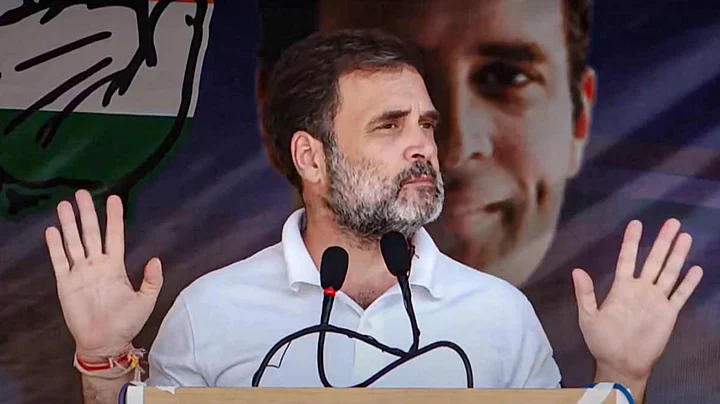The alienation from the BJP of the people in Jammu has to be seen to be believed. I had heard of it from afar, but wasn’t prepared for the extent of unhappiness I found on the streets of Jammu.
The alienation translates as anger against most of the sitting MLAs. The widespread consensus is that they did nothing, except to feather their nests.
For its part, the BJP is trying to put its best foot forward in this palpably bad situation, denying tickets to even very senior leaders, shifting some longstanding leaders to adjacent constituencies and fielding men brought in from other parties in other constituencies.
This will help the BJP to gain a few seats more than it would otherwise win, but it may not be enough for it to make a credible bid for power. If it does make the cut, it will be largely thanks to the Congress’s lackadaisical inability—or unwillingness—to take advantage of the massive anti-incumbency sentiment.
In the face of an open field which it could exploit to its benefit, the Congress is doing almost nothing.
One goes around the city trying to find its most well-regarded Congress face, former minister Raman Bhalla, but he’s not there. He has been forced to fly to Delhi and then Srinagar in his efforts to get tickets appropriately sorted out.
It’s bizarre! Instead of the party’s senior leaders sitting in Jammu to make decisions in response to the ground situation, it’s making its most popular and promising figures run circles around those leaders, away from the battleground.
Jammu’s the Real Battleground
Make no mistake about this: Jammu is the battleground where the fate of the National Conference-Congress alliance will be decided. The huge anti-incumbency sentiment in this belt of the state has opened doors for the alliance—and the alliance ought to be led by the Congress in this part of the state.
The logic of the alliance ought to be that the Congress rides largely on NC’s coattails in the Valley, and leads the charge on the Jammu side of the Pir Panjal range which divides the union territory.
After all, the Congress party won a huge chunk of the Jammu Division seats in 2002 and was the leading contender against the BJP in 2008 and 2014—after the extreme polarisation achieved by the RSS-organised agitations against the transfer of land to the Sri Amarnath Shrine Board in 2008.
As is logical, the Congress has been given the largest chunk of seats in the Jammu division. The corollary of that logic is that it ought to have appointed a leader from this part of the UT to head its provincial unit—preferably a Hindu since its main contest is against the party of Hindutva.
But, no.
It chose to appoint Tariq Karra, a former PDP MP, who left the PDP in 2016 and joined the Congress in 2017. Karra’s influence is largely limited to his Batmaloo constituency, where his uncle, Mohiuddin Karra established a broadly pro-Pakistan base when he took on Sheikh Abdullah around 1950.
Since there has been barely any political activity in the state, which was brought under Governor’s Rule 16 months after Karra joined, and turned into a union territory after another 14 months,he is unlikely to have gotten to know much of the party cadre even in the Valley, let alone on the Jammu side of the Pir Panjal.
According to ground reports, Karra has tried to switch the `friendly fight’ agreement from one constituency to another over the past few days.
'Separatist' Factors
Gandhi arrived in Srinagar with party President Mallikarjun Kharge last week to negotiate that seat-sharing alliance with the NC. Sitting on the lawns of the Grand Palace Hotel, Rahul also had a charming conversation with a group of Kashmiri girls, the video of which went viral and was widely appreciated by cosmopolitan net aficionados.
While that may be good for Rahul’s revamped image in middle-class drawing rooms, it does little to promote the Congress’s chances of winning seats in the assembly—at least from the Jammu division, where it needs to really pull its weight in the alliance.
The contest in the Jammu division has become more crucial because elections in the Valley may be skewed by the appearance on the campaign stage of broadly separatist figures.
Already, during the Lok Sabha polls, the candidature of `Engineer’ Rashid from jail changed the dynamic so much in the last week of campaigning, that Rashid won the Baramulla seat in the house, defeating former chief minister Omar Abdullah.
Now, the Patiala House courts in Delhi are considering Rashid’s request for bail. On Wednesday, the court put off a decision by a week.
In case he is released, he could radically alter the campaign scenario in north Kashmir. As it is, candidates closely associated with Jamaat-e-Islami are in the field, and there is a chance of others from the separatist stable joining the race.
Since the emergence of erstwhile separatists will push back a so-called `national’ party like Congress more than the NC—which in any case is the leading contender in the Valley,— every trend and factor points the Congress towards concentrating its efforts in the Jammu division.
It’s pretty bizarre that the party is not doing that.
(The writer is the author of ‘The Story of Kashmir’ and ‘The Generation of Rage in Kashmir’. He can be reached at @david_devadas. This is an opinion piece and the views expressed above are the author’s own. The Quint neither endorses nor is responsible for the same.)
